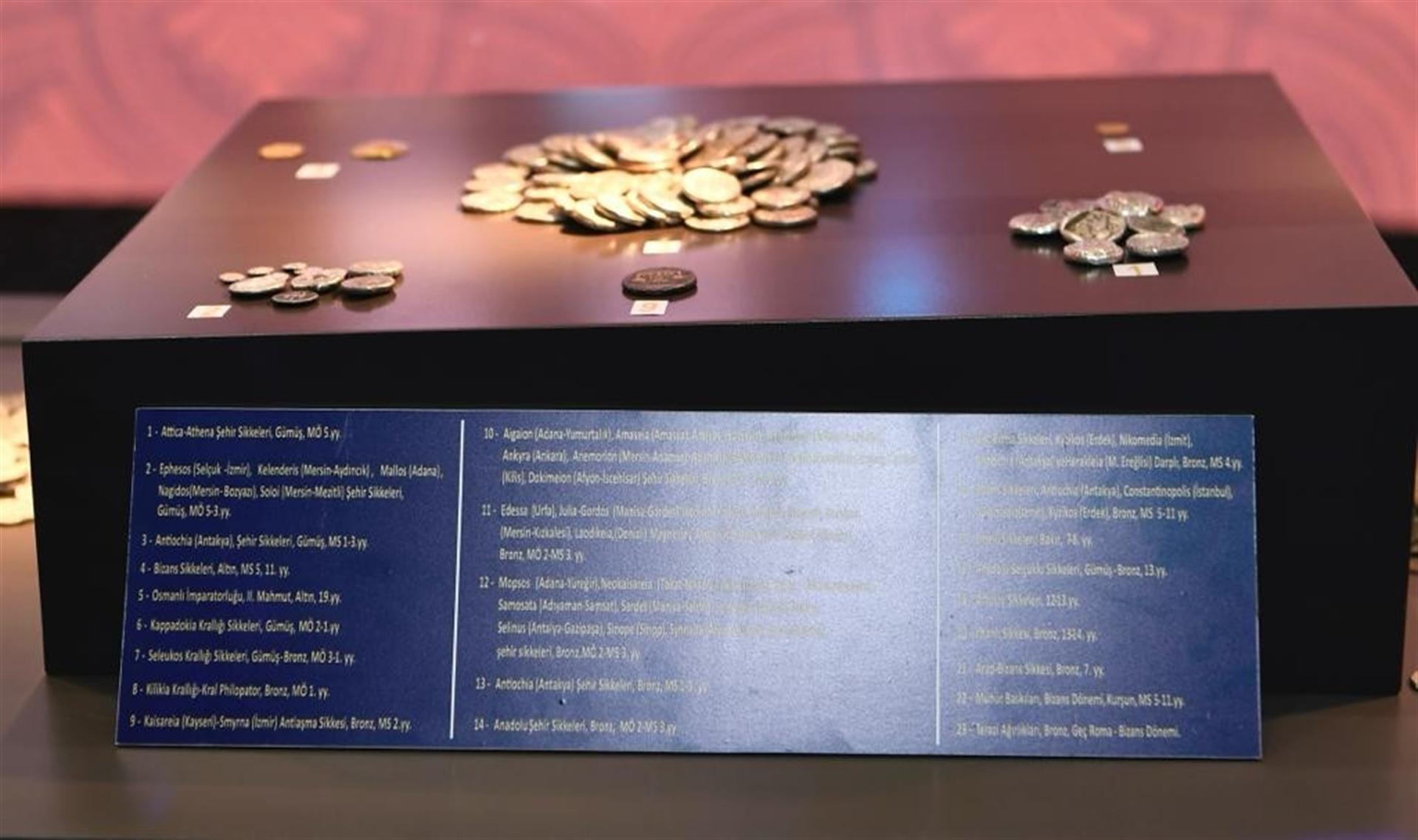
After some two and a half years, 2,955 coins, seals and scales of Anatolian origin, seized from a Turkish citizen at the Bajakovo-Batrovci border gate between Serbia and Croatia, were returned to Turkey.
Interior Minister Süleyman Soylu said that this was just the beginning of the Adana-based “Anatolian Operation,” which was carried out in 30 provinces and three foreign countries, adding that the smuggling of nearly 20,000 cultural assets abroad was prevented thanks to the operation.
Many coins and archaeological artifacts were seized from an unnamed Turkish citizen who attempted to cross the Bajakovo-Batrovci border gate between Serbia and Croatia on April 7, 2019.
The Anti-Smuggling Department of the Culture and Tourism Ministry General Directorate of Cultural Heritage and Museums requested photographs of the artifacts and went to Croatia for an on-site inspection.
The examination revealed that the artifact, consisting of 2,955 coins, lead, seal impressions and weights, were of Anatolian origin. After the report was delivered to the Croatian authorities, the artifacts dating back to Roman and Byzantine periods in the fifth century B.C. were brought to Turkey on Dec. 1, 2021, and taken under protection at the Ankara Museum of Anatolian Civilizations.
With the testimony of the suspect, who was trying to cross the border to smuggle the historical artifacts, the first historical artifact smuggling operation in the history of the Turkish Republic has been launched.
Simultaneous operations were carried out in various locations in 30 different provinces within the scope of the “Anatolian Operation.” Nearly 20,000 cultural assets in Croatia, Serbia and Bulgaria, were prevented from being smuggled abroad. The artifacts were delivered to the Adana Museum Directorate.
Nearly 20,000 cultural assets seized
A joint press conference on the seized artifacts and the operation was held on Dec. 21 by Soylu and Culture and Tourism Minister Mehmet Nuri Ersoy.
“The Anatolian Operation, supported by central and provincial organizations of the Culture and Tourism Ministry, is the first historical artifact smuggling operation in the history of the Turkish Republic. Many members of the organization were detained and 26 million euros were confiscated. Nearly 20,000 cultural assets were seized before being smuggled abroad and were handed over to the Adana Museum Directorate. Thanks to the work carried out by the police and gendarmerie units, many artifacts have been seized and many illegal excavations have been prevented,” Soylu said.
A special collection in homeland
Ersoy said that 525 works were brought from abroad, reaching the highest figure in the last 10 years in 2021.
Reminding that with the strenuous efforts made by ministry experts, it was revealed that the artifacts seized in Croatia were of Anatolian origin, Culture Minister Ersoy said: “We delivered a detailed report on the artifacts to the Croatian authorities. As a result, the artifacts were brought to Turkey on Dec. 1 and now are kept in the Ankara Museum of Anatolian Civilizations.”
Stating that the coins have differences in terms of period, region and usage, Ersoy said: “There are examples of Anatolian city coins, as well as the ones that were minted in the fifth century B.C. and were almost everywhere in Anatolia. There are the earliest examples of Islamic coins, which are also Arab-Byzantine minted. As for the civilization origins of the coins, we have Rome, Seleukos, Pontus, Cilicia, Umayyad, Ilkhanid-Seljuk and Ottoman coins. We can say that the coins cover a period of approximately 2,300 years. The gold coin belonging to the Ottoman Sultan Mahmut II is also in this collection. In terms of their metal properties, gold, silver and copper coins have been found. In short, an important and private collection has returned to its homeland.”
Ersoy noted that nine international agreements were signed with Iran, Romania, Greece, Bulgaria, China, Peru, Turkmenistan, Uzbekistan and the United States in order to prevent the smuggling of cultural property.
“We are having talks with Switzerland and Serbia for new agreements. I believe that it will be possible to crown our efforts with Croatia with a bilateral agreement,” he added.